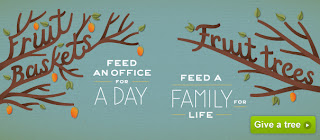We walk in the company of the women who have gone before, mothers of the faith both named and unnamed,
testifying with ferocity and faith to the Spirit of wisdom and healing.
They are the judges, the prophets, the martyrs, the warriors, the poets, lovers, and saints
who are near to us in the shadow of awareness, in the crevices of memory, in the landscape of our dreams.
We walk in the company of Deborah,
who judged the Israelites with authority and strength.
We walk in the company of you whose names have been lost and silenced,
who kept and cradled wisdom with the ages.
We walk in the company of the woman with the flow of blood,
who audaciously sought her healing and release.
We walk in the company of Julian of Norwich,
who wed imagination and theology, proclaiming "All shall be well."
We walk in the company of Sojourner Truth,
who stood against oppression, righteously declaring "Ain't I a woman!'
We walk in the company of you mothers of the faith,
who teach us to resist evil with boldness, to lead with wisdom, and to heal.
Amen.
{Excerpted from A Litany to Honor Women in Common Prayer: A Liturgy for Ordinary Radicals }
}
It's exceedingly difficult to find a good devotional, isn't it? I read My Utmost for His Highest
This year I finally found a keeper: Common Prayer
Every month's introduction features a Mark of New Monastacism [reconciliation, creation care, peacemaking, common life, etc]. Each day has a unique morning reading including call and response liturgy, a song, psalm, Old and New Testament readings, a prayer and a benediction. There is often a short paragraph about that day in history or a saint feast that coincides. Common Prayer also includes one daily midday prayer and seven evening ones to alternate among each week.
I tend to read just the morning prayer if I'm in the habit. I read more during lent and will probably throughout advent, too. Sometimes Jim or the kids read with me, and I hope to share that more.
The back of the book has prayers and liturgies for many occasions in life together. Finding A Litany to Honor Women yesterday, of which I only quoted part, was a welcome breath of poetic, prophetic fresh air, especially after difficult conversations we'd been having here and elsewhere about women in the church.
The hardcover is beautiful and solid with a ribbon to mark a place. Daily readings are also posted online, if you want to get a better sense of what it's like and jump into reading today.
May the peace of the Lord Christ go with you : wherever he may send you;
may he guide you through the wilderness : protect you through the storm;
may he bring you home rejoicing : at the wonders he has shown you;
may he bring you home rejoicing : once again into our doors.
What readings are encouraging your heart lately? Do you come from a liturgical background, or like me, have you been drawn to it as an adult? If you have kids, what do you read with them? I've heard great things about the Jesus Storybook Bible
Zondervan provided me with a copy, but my high praise is gratis:)
Tweet


























